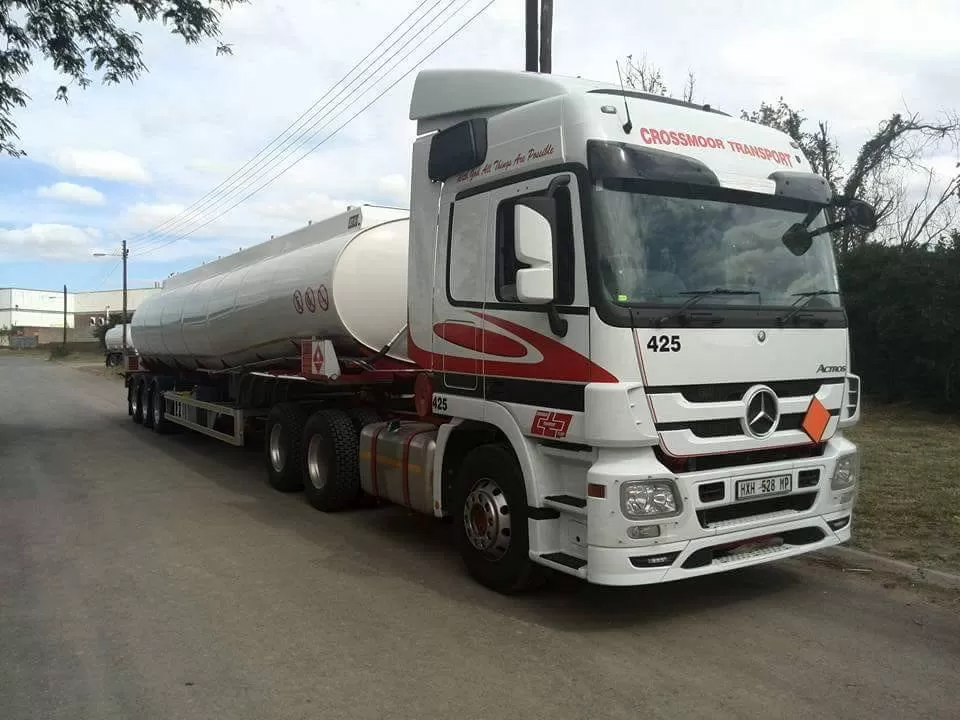
Durban – Absa Bank Limited has applied for the liquidation of Crossmoor Transport over a R113.7m debt. Crossmoor Transport and a sister company Xmoor transport owes ABSA R113.7m and R8.16m, respectively, the Sunday Tribune has reported.
Advocate Dees Ramdhani representing Absa explained in court papers that Crossmoor was the asset owner and Xmoor the trading entity.
Absa said Crossmoor failed to settle debts, owed since November, before the end of February, as per an agreement.
The bank then approached the Pietermaritzburg High Court seeking a winding-up order on the grounds the company was insolvent and unable to pay its debts.
Attempts were made by both parties to reach a settlement.
Absa’s application for the final winding up was on the grounds that the company was factually and commercially insolvent, committed acts of insolvency and unable to pay its debts.
In response, Crossmoor Transport opposed the application on all grounds and argued that while its assets were encumbered, it exceeded the company’s liabilities. Its legal team argued it was not just or equitable to wind up the business because of consequences to the employees.
Crossmoor did maintain that it did fall into arrears with repayments due to unforeseen circumstances.
Absa launched its application in December, two months after Engen Petroleum Engen was granted a court order to recoup R50m in fuel debt owed by Xmoor Transport.
Crossmoor first defaulted on fuel payments in January 2019 and signed an acknowledgement of debt, two months later, of R35m.
Crossmoor Director Inderan Naicker said the company struggled to pay Engen because it was owed R100m by coal mining company, Future Coal.
Naicker has since told media that the Engen debt was settled.
In the Absa matter, Crossmoor said it was unable to furnish its annual financial statements to the bank before June 30, 2019, mainly because of the kidnapping of a family member, who was integrally involved in the administration.
Judge Mohini Moodley, who presided over the matter, said that Crossmoor failed to provide updated financial statements to sustain its argument.
“In my view, the fact that Crossmoor’s debt to Absa Bank remains due and that there is no acceptable evidence to the contrary, it is sufficient to conclude that not only is the respondent unable to pay its debts, but it is insolvent.”
Judge Moodley said Crossmoor challenged its insolvency application by saying it had substantial assets and equity which exceeded its liabilities.
“But if the assets of a company do exceed the liabilities, mere illiquidity, capable of being overcome within a reasonable time, should be a trump card to resist liquidation.
“Speaking for myself, I always look with great suspicion on, and examine very narrowly, the position of a debtor who says, I am sorry I cannot pay my creditor, but my assets far exceed my liabilities.
“To my mind, the best proof of solvency is that a man should pay his debts. I always examine in a critical spirit the case of a man who does not pay what he owes,” she said.
Moodley further added that a person who claimed they were solvent and for that reason should not be sequestrated, should be able to establish this with acceptable evidence.
“The respondent has not provided any acceptable evidence that it is solvent,” said Judge Moodley.
A copy of the provisional liquidation was served to the business’s registered office, the South African Reserve Bank and all known creditors.
A copy was ordered to be placed on the company’s front doors and notice boards for employees and the registered trade unions for the employees to be notified.
The provisional liquidation notice was also expected to be published in a government gazette and daily Durban newspaper by Tuesday.
Family spokesperson Keshia Patchiappen said while the matter was in the hands of the company’s attorneys and still before the court, they could not comment on the ongoing matter.






